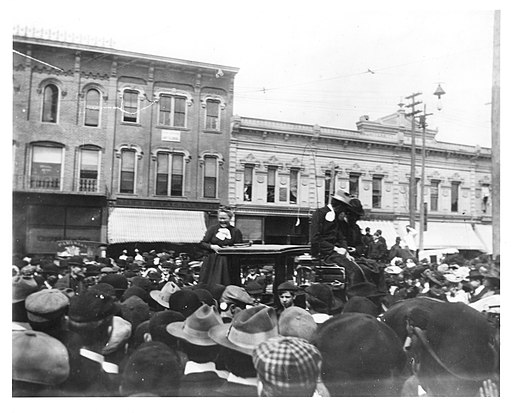Temperance and prohibition groups had been active in Salisbury since 1820 when drunkenness was the leading cause of death. But during a statewide referendum in 1881, Rowan County voted five to one against prohibition as the measure failed.
Naturally for 150 years there had always been a segment of people in the county opposed to distilling on moral grounds; often with good reason. Some had observed or experienced child abuse by a drunken parent or suffered hunger when the family farm was gambled away or venereal disease felled the breadwinner.
Now in 1908, why a renewed hue and cry over an issue saloon owners had hoped was laid to rest? Industrialization! Down on the farm a few drinks of homemade brandy did little harm. But as men flocked to town for jobs at the mills and railroad sops, eighteen saloons were open to separate often bored, displaced, and melancholy former farm workers from their paychecks.
Salisbury an Oasis in a Dry Dessert
The counties contiguous to Rowan exercised local option and outlawed strong drink. This left Salisbury as “an oasis in a generally dry desert.” So the city of 7,000 became the drinking man’s haven. Whiskey production and barroom sales accounted for fifty percent of local revenue. Prominent men practiced the distiller’s art and employed several hundred workers. Several substantial fortunes were established by distribution of such favorite brands as “Pride of North Carolina” all over the South.
Prohibitionists took heart when mill owners and the Southern Railroad began a campaign to drive out the saloons. Alcohol was causing too many accidents. Skilled stump speakers were invited to town to address rallies and church groups. Evangelists George Stewart and Mordecai Ham were among the first to accept the call. Carry (not Carrie) Amelia Nation arrived, armed with traditional hatchet.
The Anti-Saloon league of Salisbury started writing members of the General assembly to encourage another referendum. They maintained Salisbury was cursed by domination of the liquor forces.
The “wets” did not remain silent during these days of reform; particularly when the legislature authorized a statewide vote for May 26, 1908 to decide if whiskey were to stay or go. These anti-prohibitionists established headquarters in Salisbury, naturally, the leading producer of the state. Archibald Henderson Boyden, prominent scion of a distinguished local family was elected chairman to head the campaign. Probably the state’s most outspoken opponent of prohibition, he favored self-determination.
Part 1, from an article originally published in The Heritage of Rowan County, North Carolina by the Genealogical Society of Rowan County.1
- Kathy Sanford Petrucelli, editor, The Heritage of Rowan County, North Carolina (Salisbury, N.C.: Genealogical Society of Rowan County, 1991.)

